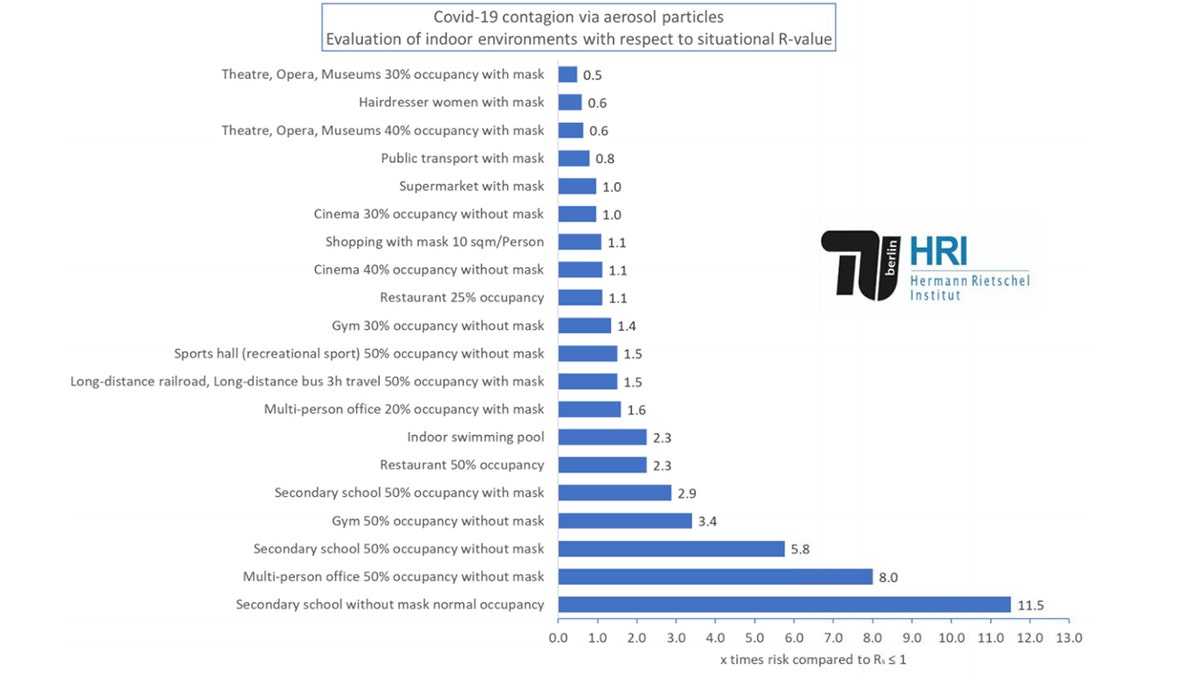For people fatigued with quarantine amid the COVID-19 pandemic, a new study from Germany recommends what to do after getting out of the house.
Don’t go out to eat or get a haircut, don’t go shopping for food or go to the gym— go to a museum.
CORONAVIRUS: WHAT YOU NEED TO KNOW
According to the Berlin Institute of Technology (TU Berlin) in Germany, the risk of COVID-19 infection via aerosol particles is far lower in museums than in supermarkets, restaurants, offices and on public transportation.
Variables considered were the quality of the airflow, the type of activity carried out in the space, and the dose of aerosol particles inhaled by people in a room.

For people fatigued with quarantine amid the COVID-19 pandemic, a new study from Germany recommends what to do after getting out of the house. Don’t go out to eat or get a haircut, don’t go shopping for food or go to the gym — go to a museum. (Berlin Institute of Technology)
"What is clear from the study is that it is above all the situations in which we like to be that are unfavorable," said Martin Kriegel, who helped lead the study. "Situations in which many people come together in a confined space: there you can not ventilate sufficiently, it will always be an unfavorable situation."
Outdoor activities all increased last year in the face of canceled indoor events and cautions about the dangers of catching the virus while around other people inside.
The study said food shopping, dining indoors or exercising in a gym are at least twice as risky as visiting a museum to view art.
CLICK HERE FOR FULL CORONAVIRUS COVERAGE
Museums, however, haven’t been considered essential to the populace.
Celeste DeWald, the executive director of the California Association of Museums, told the New York Times earlier this month: "It’s frustrating to see crowded shopping malls and retail spaces and airports, yet museums are completely closed and many have not been able to reopen at all for the last 10 months. […] There is a unique impact on museums."
Critics think museum closure is a political matter.
In a column for the Los Angeles Times, art critic Carolina A. Miranda called California Gov. Gavin Newsom’s policies "absurd." Museums in the Golden State remain closed to visitors.
"The wildly uneven criteria speak more to the powerful, well-funded lobbies helping shape public health policy than to anything resembling science or even common sense," Miranda wrote. "At a moment in which it is possible to get a tattoo or paw the goods at Chanel in Beverly Hills, it should be possible to visit a museum. Period."




